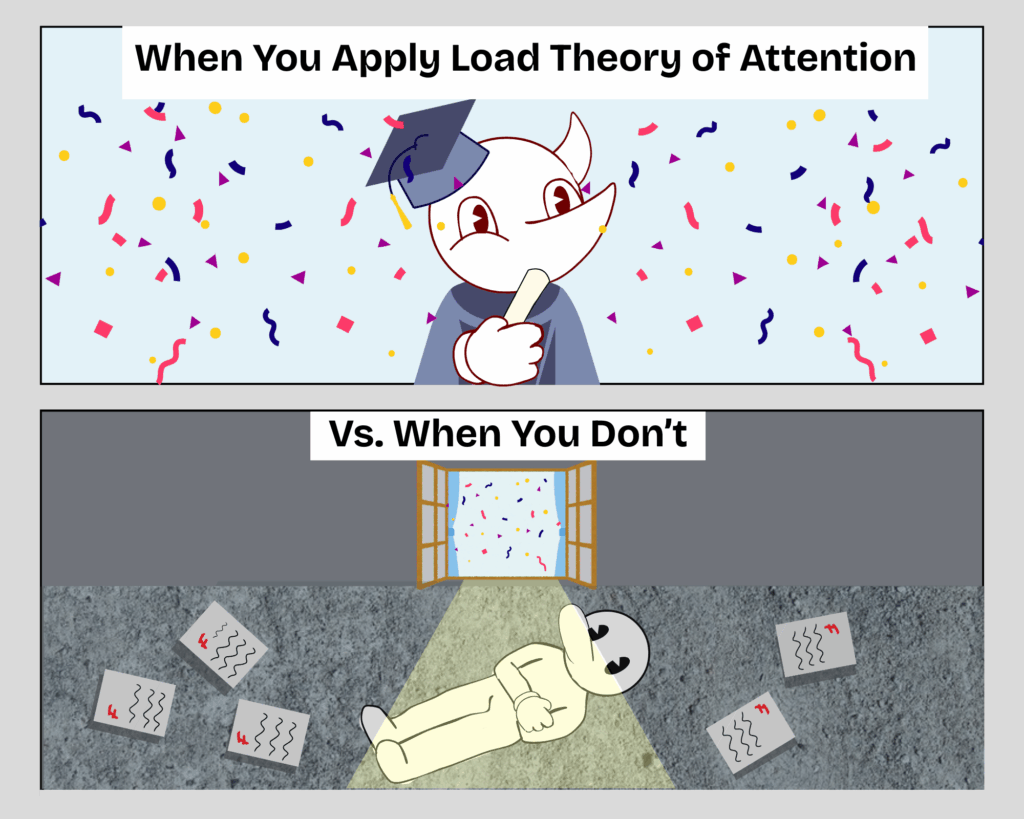By Bailey Newhouse

Intro:
Have you ever noticed that, when you are working on a tough homework assignment, the world shuts down around you? You become hyper-focused on the task in front of you that you barely register someone coughing a few feet away from you or the sound of music playing through your headphones. However, when you pull out your phone and start watching Tik Tok, suddenly every single noise is audible. The person talking loudly across the room, the sound of someone getting out of a chair, the person coughing from early, all of it begins to distract you from your daily doom scroll. Why is that? Well, you may be experiencing something called load theory of attention, and when it comes time to study for those college exams, it may be something you want to be aware of.
Continue reading “Load Theory of Attention: The Ultimate Theory to Success”